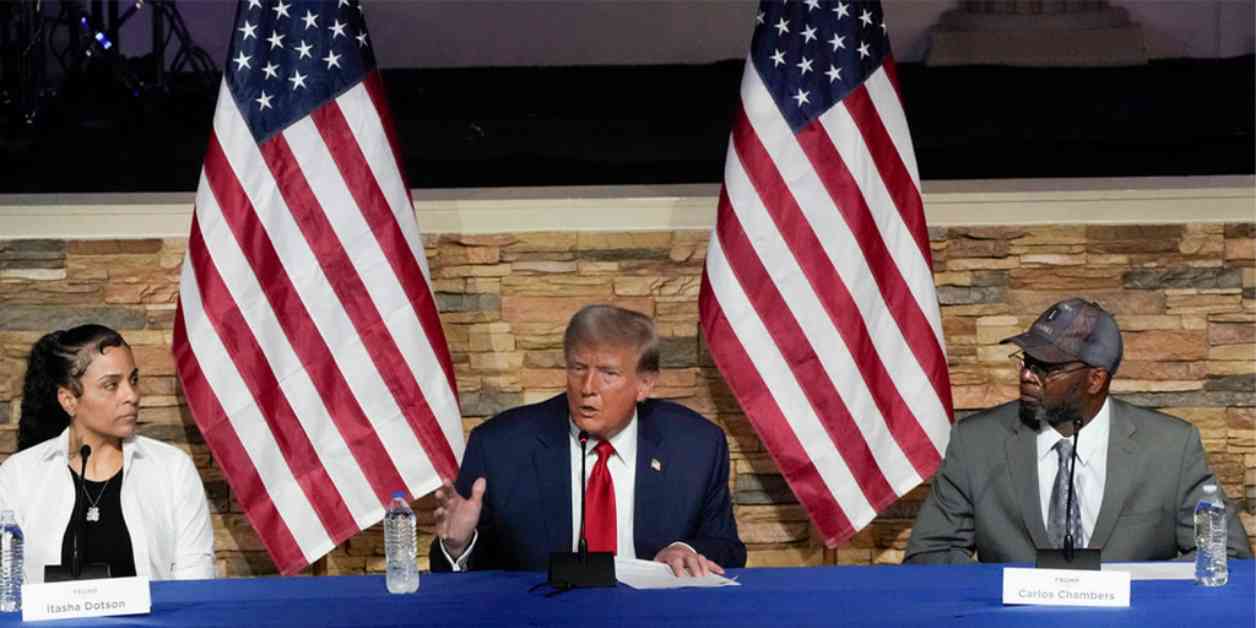Former President Trump made a promise to eliminate taxes on tips for service industry workers in minority neighborhoods during two events in Detroit. This move is seen as a significant focus on these communities by the Republican Party. Trump emphasized that this tax exemption would apply to restaurant workers, hospitality workers, and anyone else who relies on tips for their income.
Fox News anchor Julie Banderas highlighted the importance of this promise, stating that people in hair salons, for example, heavily rely on tips as a significant portion of their earnings. Senator Ted Cruz from Texas also expressed his support for Trump’s plan, believing that this policy alone could secure Trump a victory in the state of Nevada.
To garner more support for his proposal, Trump encouraged people to write about his promise on their receipts. This tactic was successful in gaining endorsements from public figures like musician Kid Rock and Rep. Marjorie Taylor Greene, who both shared photos of their receipts with generous tips and messages supporting Trump’s initiative.
This commitment to eliminating taxes on tips comes at a time when the Biden Administration is facing backlash over new water efficiency regulations for home appliances. Critics argue that these regulations could negatively impact daily life by limiting water flow in appliances like dishwashers and clothes washers.
Fox News contributor Tammy Bruce pointed out that Trump’s promise to reverse such regulations and focus on issues that directly impact people’s lives could be a strong campaign strategy for him. As President Biden and Trump gear up for debates in June and September, Trump’s emphasis on practical policies like tax exemptions on tips could give him an edge in key swing states.
Overall, Trump’s pledge to eliminate taxes on tips not only addresses a pressing issue for service industry workers but also serves as a strategic move in his campaign efforts. By focusing on policies that resonate with everyday Americans, Trump is positioning himself as a candidate who understands and prioritizes the needs of working-class communities.


















